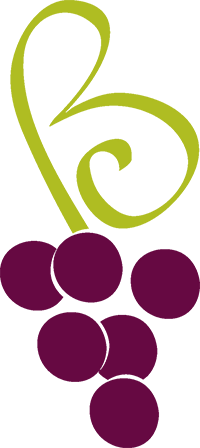- Montagne de Reims, Champagne, France
Thank you to importer Louis/Dressner for this Boulard profile:
(Click here for Louis/Dressner's additional notes on Boulard)
Delphine Boulard is the seventh generation to work her family's land in Champagne and now fully at the helm of the estate she founded with her father Francis in 2009. Prior to founding Francis Boulard et Fille with Delphine, Francis worked alongside his brother and sister running the now defunct family estate Raymond Boulard. The winery created a reputation for itself by highlighting the distinct terroirs of the three areas it worked: the rich clay soils of the Marne planted in Pinot Meunier, Chardonnay from the silica-limestone soils of the Massif de Saint-Thierry and the Pinot Noir of Mailly (the two latter being subsections of the Montagne de Reims). During his tenure there, Francis was the head viticulturist and winemaker. But a fundamental disagreement would lead him to leave it all behind and start his own much smaller estate.
Francis' career as a vigneron dates back to the early 70's, a period where chemical viticulture was only starting to gain traction. Like most in his generation, he began adopting chemical fertilizers, pesticides and herbicides in his vineyard work. But around 1996, he was faced with a daunting realization.
"As a simple peasant, I always assumed that the products we were putting on our vines would wash away after a couple of rains, that they would naturally go away. No one ever told us that chemical residue would not only permanently affect the vineyard, but actually end up in the wine."
Francis knew something had to change but wasn't entirely sure what to do. Around this time, a friendly mention of biodynamics by a colleague would introduce him to Rudolph Steiner's philosophies and lead to several years of viticultural experimentation. Determined to attempt this type of viticulture on his land, Francis convinced his siblings to convert one hectare, at first to see if it was possible to have healthy vines without using chemicals. This proved a success, so Francis tried something else: intentionally working part of a parcel biodynamically, leaving the rest in conventional chemical viticulture and vinifying both separately. Three years in a row, he felt the wine from biodynamic grapes was more expressive.
Convinced that the entire estate could and should be converted, Francis proposed this to his brother and sister. His idea was met with heavy resistance and ridicule. After much reflection, he decided that he could work no other way: Francis claimed his three hectares of vines, broke off from his family and started his own estate. His daughter Delphine, who had been working alongside her father at Raymond Boulard for nine years, decided to follow him and together they founded Francis Boulard et Fille in 2009. They work close to three hectares in the Vallée de la Marne and the Montagne de Reims following organic and biodynamic practices. The breakdown of land is essentially a third of what Raymond Boulard used to be in size, with the three distinct terroirs still expressed through a smaller, more artisanal lens: 1.6 hectares are in the Massif Saint-Thierry, 0.5h in Mailly (both sectors of the Montagne de Reims) and the 1.2h of historic family parcels in the Vallée de la Marne.
Delphine originally had no intention of becoming a vigneronne and had gone to university for interior design. After a few years designing kitchens and bathrooms for large French corporations, she was bored to death and asked me Francis if she could come work at Raymond Boulard. Her first year she studied viticulture, then she followed a professional oenological program and her third year she studied administration and business. During her studies, she was working in the vines every day.
The estate is certified organic and worked with biodynamic preparations, a rarity in Champagne. So much so that large signs had to be installed in the vineyards so that helicopters can see which plots to avoid while dumping chemical products on the vineyards. It may be hard to believe, but this is a common practice in Champagne; a law passed in the early 2010's forbidding helicopter treatments within 120 meters of organic vineyards! Another poignant example: of the 400 hectares planted in the Vallée de la Marne, only 3.2 are certified organic. The Boulard own 1.2 hectares of that land.
Unlike most Champagne houses, grapes are picked at an optimal ripeness. This produces vins clairs closer to "normal" dry wine (12, 13%), making for Champagnes that are quite vinous. In such, dosage is decided judiciously in measure of each release, though the trend has been less and less or no dosage whatsoever.
After almost 50 years in the vines, Francis retired in 2017. A dramatic electrical fire in the Boulard cellar in late 2016, coupled with Francis' retirement led Delphine to build a new edifice alongside her new house. The only major stylistic shift is that Delphine now vinifies and ages everything in old Burgundian barrels and a few foudres (Francis had favored demi-muids along with barrels of all sizes).
Photos ©Boulard & Fille







